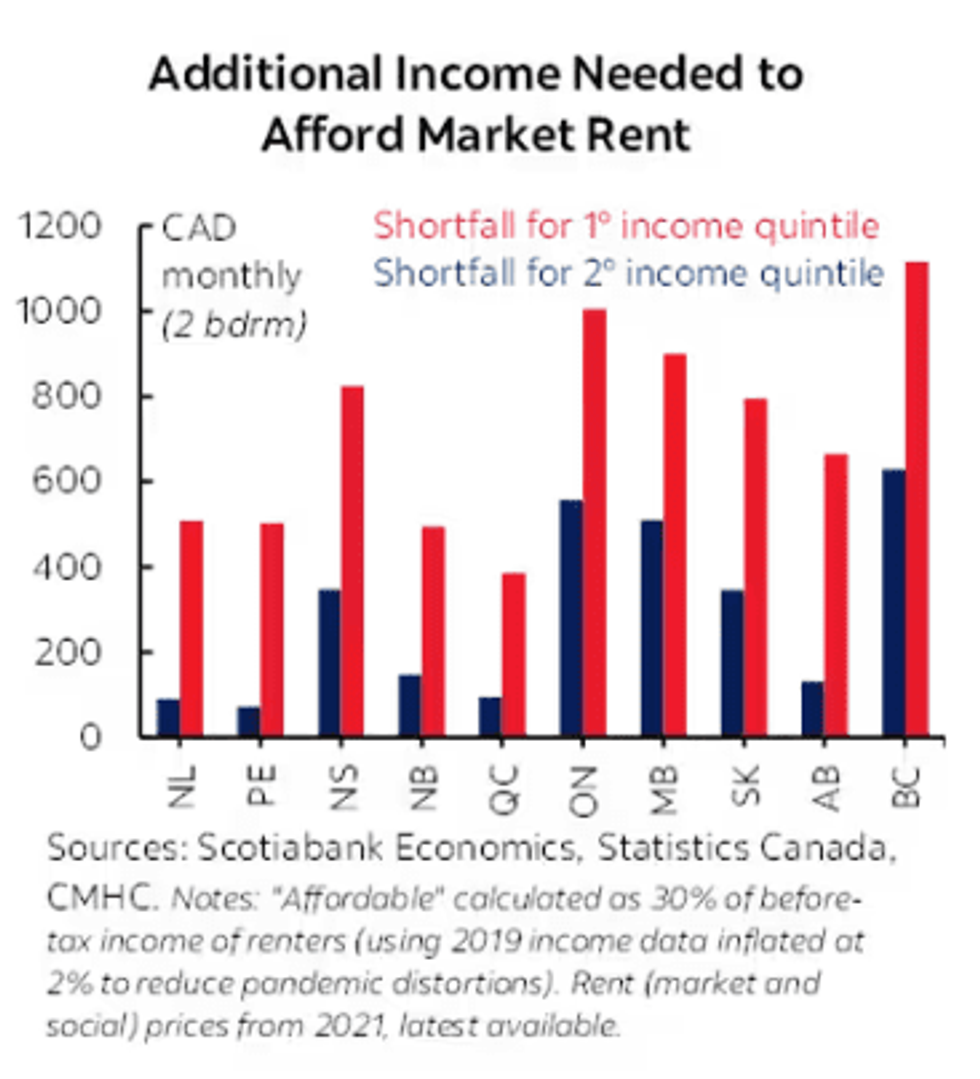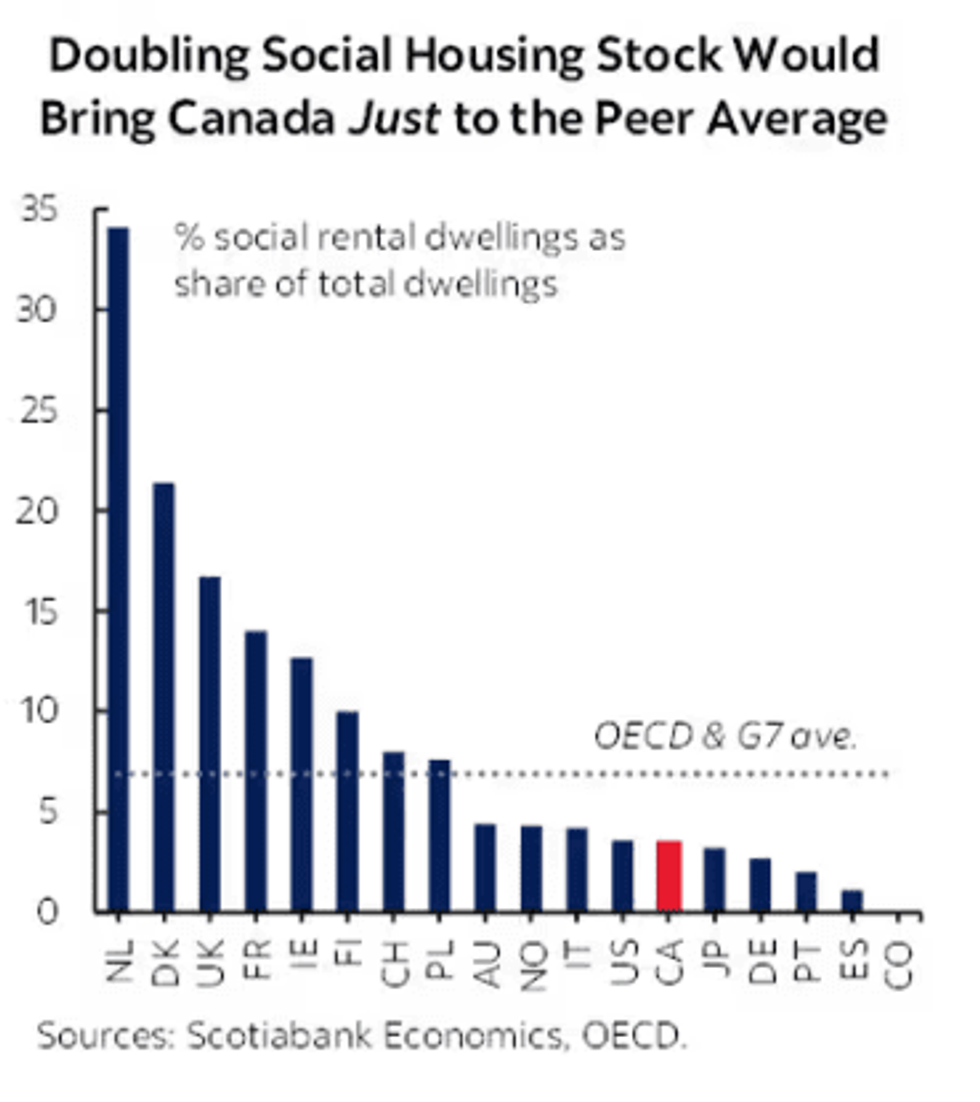Doubling Canada’s stock of social housing would be a “modest start” in addressing the national housing crisis, says a new report from Scotiabank.
The report, authored by Scotiabank's Head of Inclusion and Resilience Economics Rebekah Young, examines housing affordability in Canada -- or lack thereof -- as well as the policy failures that have left Canadians to grapple with rising shelter costs.
“Home prices are cooling in an elevated interest rate environment in Canada, but housing affordability remains elusive,” writes Young. “Imbalances persist across the housing continuum as a result of pervasive policy coordination failures. Fixing the broader housing supply issue remains an imperative and is still the first-best option. Signs that we are on this path are not promising. The recent uptick in housing starts is welcome but insufficient to restore affordability.”
She adds that, for low-income Canadians, the housing status quo poses “an impossible dilemma.”
“Market-priced housing will likely never be affordable for a serious share of households — and easily those in the lowest income quintile — based on current trajectories,” Young continues. “Over 10% of Canadian households (or 1.5M) were in ‘core housing need’ according to the 2021 census. By definition, they have nowhere else to go in the marketplace. Another near-quarter of a million Canadians are homeless.”
Given the dire realities, Young points to the need for more social housing, which currently represents a mere 3.5% of Canada’s total housing stock, or 655K units according to the Canada Mortgage and Housing Corporation.
The report proposes doubling Canada's social housing supply, bringing the stock to 1.3M units, which would bring the country in line with the Organisation for Economic Co-operation and Development standard and G7 averages.
Although Young cautions that delivering more social housing to the Canadian market “would not fully close the gaps," she maintains that it would be a move in the right direction.
“The moral case to urgently build out Canada’s anemic stock of social housing has never been stronger. The economic case is equally compelling. Governments are attempting to alleviate the strain on lower income households with a host of transfers, but the cost to do so will continue to escalate as shelter costs rise, market income provides little offset, and policy failures persist. Such an approach may be more responsive to the needs of Canada’s most vulnerable households and more cost-efficient for governments in the long run.”























